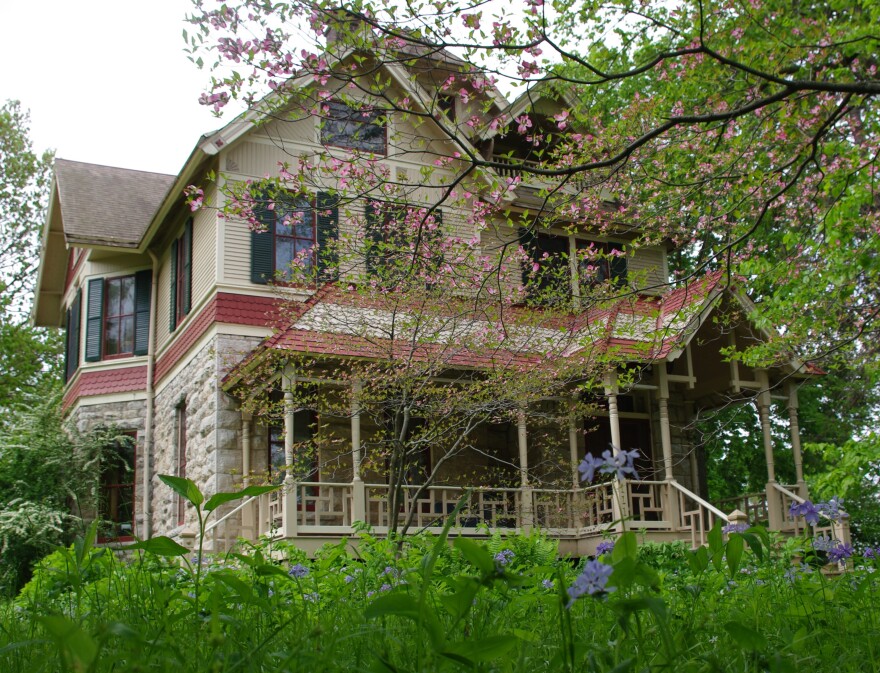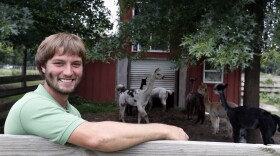SARAH GARDNER: When Aldo Leopold was born in Burlington, Iowa, in 1887, the United States was in the heart of the Gilded Age. Railroads, factories and mining were rapidly expanding, and the last reaches of the Western frontier were being settled.
Conservation efforts, meanwhile, were limited and often ignored. In just 13 more years, the passenger pigeon, once the most abundant bird in North America, would be extinct in the wild.
Through his work as an adult in the forest service and his teachings as a professor of wildlife management, Leopold had been among the first to argue we couldn't favor some species over others, but had to understand natural systems as interconnected.
Steve Brower, a landscape architect and local historian who lives in Burlington, sees Leopold's story as something to celebrate.
STEVE BROWER: It's hard to overstate the importance of what this little kid growing up in Burlington was able to do for conservation around the world. He went to work for the forest service, after graduating from Yale, in the Southwest. And there he really sort of started to change the forest service in big ways. The forest service management approach was taking care of the forests and logging, taking care of erosion, taking care of grazing, and a number of other issues. And Leopold, in the early 1920's, recognized rather quickly that all of these things were related.
GARDNER: Today, Leopold is best known for his book A Sand County Almanac. At the heart of the book is a profound idea, says Brower.
BROWER: We have used land as a commodity belonging to us. When we see land as a community to which we belong, we may begin to use it with love and respect... He coined that idea, and so he has followers all over the world. His book, written in 1948 and published a year after his death in 1949 is still in print. It's been translated, I think, into 16 different languages and has sold over 2 million copies.
GARDNER: Now Brower is among those working to preserve the boyhood home of Aldo Leopold in Burlington. Together with Jerry Rigden and Dave Riley, he has formed the Leopold Landscape Alliance with the hopes of raising $280,000 to purchase the property and turn it into an education center.
BROWER: Partly, we want to have it be a historic site for interpretation of the Leopold legacy, not only Aldo's legacy but also the rest of the Starker-Leopold family, because they all were involved in natural history one way or the other. And then we'd also like to use it as a guest residence, sort of an artist-in-residence program for writers, researchers, artists, poets.
GARDNER: Contributions to the project can be made through the group's website, www.leopoldlandscape.org. There, information can also be found about Leopold, the history of the property, and goals for the project.
Brower says interest in preserving Leopold's boyhood home is growing.
BROWER: We're so lucky. People sometimes say, "How did you think to do this?" or "How can you find time to do this?" or whatever question they might ask. And my usual response is we're not doing it. Aldo is doing it, because of his fame.



